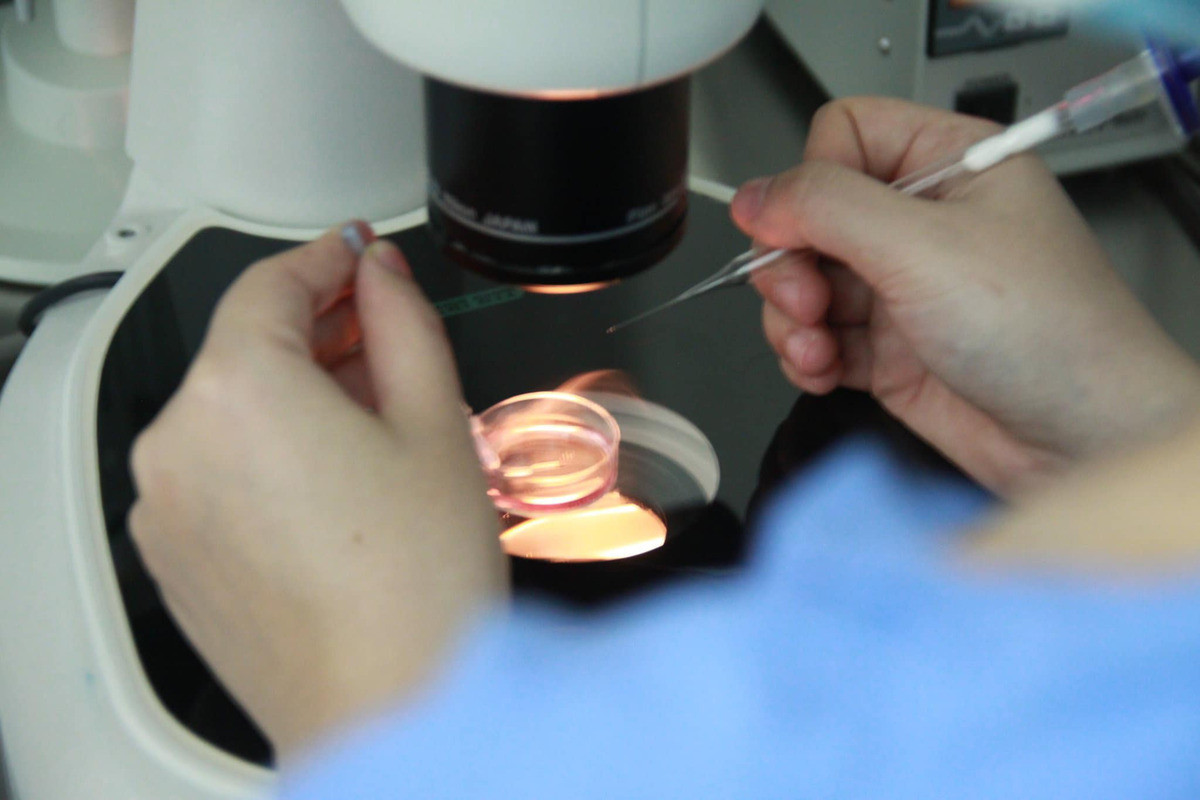
Associate Professor Nguyen Xuan Hoi, Director of the Cord Blood Stem Cell Center at the National Hospital of Obstetrics and Gynecology (Hanoi), spoke about the issue at a seminar on ovarian dysfunction held in Hanoi several days ago.
According to Hoi, ovarian dysfunction is rising, accounting for 7-8 percent of infertility cases. Some patients in their 20s and 30s have egg quality akin to those over 40.
Ovarian dysfunction stems from aging, genetics or conditions like ovarian cysts and endometriosis. Ovarian reserve is directly linked to age, impacting reproduction. For women marrying after 35, conceiving becomes harder.
"This is why many young people opt for egg freezing. At our hospital, it’s common for 30-year-olds to sign up," Hoi said.
Nguyen Phuc Hoan from Hanoi Medical University Hospital said young women with irregular periods, hot flashes, dry skin, or vaginal dryness should seek early checkups for ovarian decline. If detected, they should freeze eggs promptly as delaying worsens egg quality and quantity, making IVF challenging.
Hoan noted that many women in their 20s and 30s recently visited and found early ovarian decline or menopause without clear cause.
Scientists haven’t pinpointed why young people face ovarian decline, though recent studies suggest a family history link.
Young women sometimes freeze eggs due to medical needs—like cancer or cyst treatments—or a reluctance to have kids or marry soon. Most face intense work pressure and financial stress, or prefer staying single but want to save high-quality eggs for later.
On average, a session retrieves 10-15 eggs, with storage fees varying by center, costing a few million dong annually.
Pham Thi Thuy Duong from the Hanoi Reproductive Support Association noted that while men produce sperm lifelong, women have a fixed egg supply.
"Women are born with a set egg count that doesn’t increase. Radiation, pelvic infections, or trauma can deplete it faster," Duong explained.
Signs of ovarian dysfunction often show as irregular periods, though many lack symptoms, only discovering it during infertility checks.
To maintain egg quality and prevent decline, Duong advises women to:
First, avoid radiation exposure. Second, practice safe sex to lower risks of STDs, infections, and unintended pregnancies. Third, eat healthily, cutting back on processed foods, greasy items, alcohol, and sugary drinks. Fourth, practice physical exercise regularly and maintain a healthy weight to boost ovarian function.
She also urged young women to go to bed early and avoid chronic stress.
Duong adds that women with ovarian dysfunction can still conceive naturally or via IVF. Doctors use minimal stimulation drugs to retrieve eggs. If eggs can’t be obtained due to severe decline, donated eggs from banks enable IVF.
Phuong Thuy